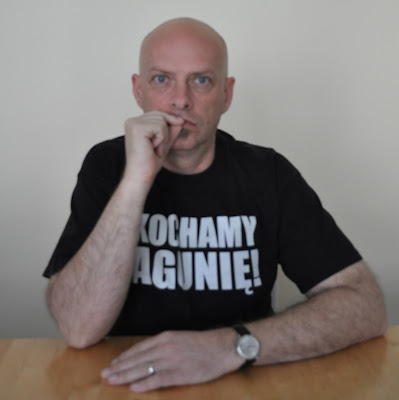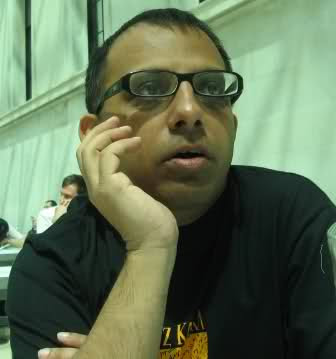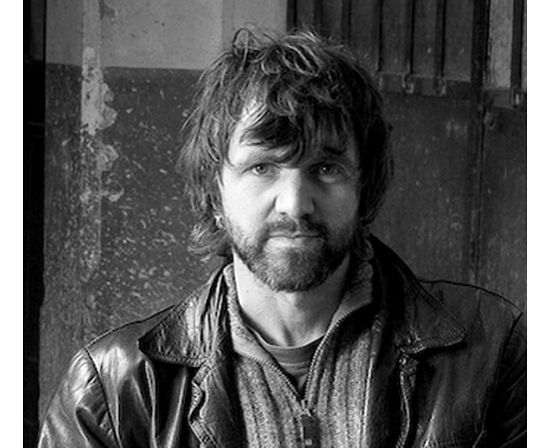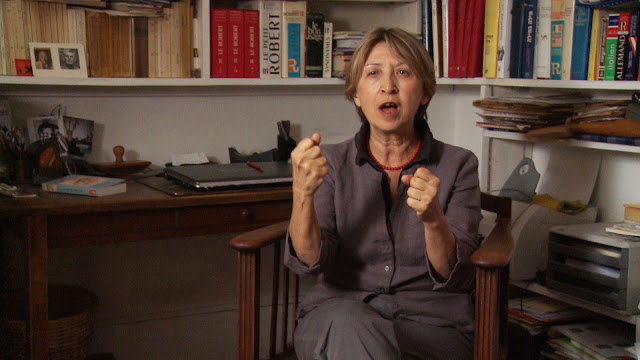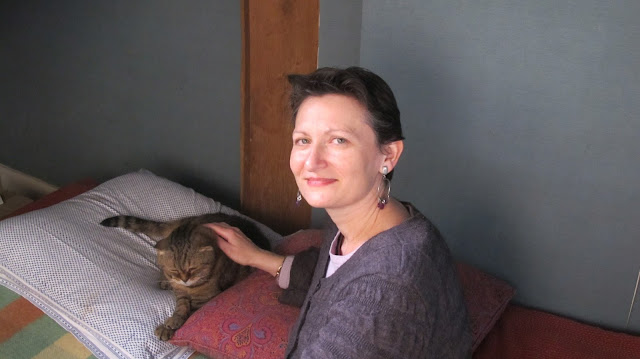“What I like and dislike most about my job as a literary translator is the so called ‘solitude of the translator’. (...)
However, the core of this job is the endless personal confrontation with the written page, a dialogue with oneself in search of the right solution while the author is asking you in the background not to betray him/her. I strongly feel that presence all the time, especially when the authors are dead and I cannot ask them for comfort, or when I am about to make a bold choice. Still, this dialogue with oneself and with the author’s shadow is very fascinating and prevents solitude, a positive value in itself, from becoming mere isolation in a negative sense.”
Ada Vigliani is an Italian literary translator. She speaks Italian, German, French, English. She decided to answer our questions in Italian.
Come ti sei avvicinata al mestiere della traduzione letteraria? Quali autori traduci e da quali lingue?
Per caso. Nel 1982, di ritorno a Torino dall’Austria, dove avevo lavorato all’università di Salisburgo su Robert Musil (all’etica di questo scrittore avevo già dedicato la mia tesi di laurea in filosofia), fui contattata da un amico filosofo, ai primi passi della carriera accademica: gli avevano chiesto di tradurre il corposo secondo volume del Mondo come volontà e rappresentazione di Schopenhauer per “I Meridiani” Mondadori, ma lui non aveva tempo (e forse nemmeno la voglia, tutto preso com’era da altri progetti) e fece il mio nome all’editore. Le venti pagine della mia prova di traduzione passarono al vaglio di un filosofo e di un germanista, e il responso fu positivo. Dopo Schopenhauer arrivarono Goethee poi Musil, e così a poco a poco quella che era solo una delle mie attività (per parecchio tempo ho anche insegnato tedesco e filosofia al Conservatorio di musica a Torino e scritto recensioni per Tuttolibri-La Stampa) è diventata l’impegno prevalente.
Ho iniziato traducendo classici e continuo a tradurne (oltre agli autori citati anche Hermann Broch, Elias Canetti, Ernst Jünger, Stefan Zweig). Ma traduco anche autori contemporanei sia nel campo delle scienze umane (l’egittologo Jan Assmann, ad esempio), sia soprattutto in quello della letteratura (Fred Wander, Jenny Erpenbecke W.G.Sebald). Traduco autori di lingua tedesca, molti dei quali austriaci.
Quali sono secondo te i pregi e i difetti del mestiere di traduttore letterario?
Pregio e difetto insieme è la cosiddetta “solitudine del traduttore”. Certo ci sono oggi mille occasioni di incontro con colleghi, con i quali condividere esperienze e ai quali chiedere aiuto; importantissimo è anche il rapporto con il proprio revisore, quando si ha la fortuna di averne uno e io sono stata generalmente fortunata da questo punto di vista, in particolare con Adelphi, dove il mio rapporto con il responsabile della germanistica è quanto di meglio ci si possa aspettare.
Ma il fulcro di questo lavoro è sempre il confronto individuale con la pagina scritta, il dialogo con se stessi alla ricerca della soluzione giusta, mentre sullo sfondo l’ombra dell’autore ti chiede di non tradirlo. Io sento sempre con forza questa presenza – soprattutto quando gli autori sono morti e non posso chiedere loro conforto, quando sto per fare una scelta magari ardita. E tuttavia questo dialogo con se stessi e con l’ombra dell’autore è anche molto affascinante ed evita che la solitudine, un valore positivo, diventi un mero e negativo isolamento.
Come in ogni lavoro pienamente autonomo, si ha una notevole libertà organizzativa rispetto ai tempi, ai luoghi. E questo è positivo, ma richiede molta disciplina interiore: prefiggersi orari e/o tranche di lavoro da eseguire in un certo periodo di tempo, che può essere giornaliero o settimanale etc. È un lavoro che si svolge tra le mura domestiche, il che porta a una sovrapposizione e confusione tra vita privata e vita lavorativa. Per di più, essendo un lavoro che prende molto intellettualmente ed emotivamente, come ogni lavoro di scrittura e quindi creativo a volte ti perseguita “fin nei sogni”, come diceva lo scrittore che al momento amo di più, W.G. Sebald, a proposito dello scrivere!
Fra i difetti – e qui compio un balzo verso il basso nel “registro stilistico” rispetto alle “nobili” considerazioni svolte finora – c’è la questione del “vile denaro”. Tradurre per l’editoria è un lavoro sottopagato, almeno qui in Italia. E non a caso è per molti un secondo lavoro. Chi vuole vivere di sola traduzione editoriale, per arrivare a garantirsi la sopravvivenza deve mettere in conto di lavorare in media almeno cinquanta ore la settimana, senza quasi potersi permettere pause per ferie o malattie.
Qual è stata l’esperienza più arricchente e perché?
In trent’anni di lavoro di esperienze arricchenti ce ne sono state moltissime, sia quando si è trattato di confrontarsi con classici da tradurre ex novo, come Musil, Zweig e Goethe, sia con autori contemporanei. A tutt’oggi il massimo coinvolgimento è quello della traduzione di tutta l’opera di W. G. Sebald, il grande scrittore tedesco nato sul confine dell’Austria e della Svizzera, emigrato in Inghilterra a poco più di vent’anni e lì rimasto fino alla morte nel 2001 a soli cinquantasette anni. Sebald ha sempre continuato a scrivere in tedesco: la sua è una scrittura molto originale e complessa, architettonica e labirintica, con periodi lunghissimi che sono obiettivamente molto difficili da rendere e mettono in gioco il traduttore. Ma è proprio misurandosi con le sfide che si ottengono le migliori soddisfazioni e se ne esce comunque arricchiti. Pagine, quelle di questo scrittore, nelle quali l’invito a vedere con gli occhi della mente ciò che lui ci descrive e ad ascoltare il ritmo e il suono, che sono una sua peculiare caratteristica, si intrecciano inestricabilmente e costituiscono un’altra sfida per il traduttore.
Un’esperienza molto arricchente, al centro della quale c’è ancora Sebald, è stata la creazione di un gruppo di lavoro fra i suoi traduttori. Ne avevo incontrati un paio a Berlino nel 2008, in occasione di un incontro organizzato dallo LCB, ed ero riuscita a confrontarmi sulla traduzione del poema in versi liberi di questo autore con il suo traduttore greco, che stava anche lui come me lavorando su quel testo. Di lì è nata l’idea di raccogliere in un gruppo tutti i suoi traduttori. È stato piuttosto impegnativo rintracciarli, ma dopo pochi mesi eravamo già una trentina. Fra alcuni si è creato un legame molto stretto, fatto di mail, telefonate, incontri via skype che ci portavano a riflessioni sul nostro autore, sulla letteratura e sulla traduzione in generale. Un libro di Sebald, Gli anelli di Saturnoè stato tradotto in parallelo da me, dalla traduttrice finlandese, da quella ungherese e dal traduttore greco e con il sostegno di coloro che già avevano di recente lavorato al testo, come la traduttrice israeliana e quella olandese, o di quelli che avrebbero iniziato di lì a breve il lavoro, come il traduttore ceco e le traduttrici polacca e lituana.
Qual è stata la cosa che più ti ha fatto sentire vicina a un autore?
Anche in questo caso non credo di potermi limitare a un nome e a un momento. Ho avuto la fortuna di poter tradurre sempre libri che rientravano nelle mie corde. Anche perché forse ho un sufficientemente ampio numero di corde che mi permettono di accostarmi con “empatia” ad autori che sono obiettivamente distanti fra loro. D’altronde chi traduce deve lavorare per crearsi una grande apertura mentale, così da aumentare il numero delle sue corde. Come un attore, che riesce a interpretare ruoli differenti perché sa essere quel determinato personaggio in un certo momento. Gli autori la cui scrittura è improntata a ironia e melanconia in una visione della letteratura come salvezza del passato sono quelli cui mi sono sempre sentita più vicina. Proprio in questo senso sento vicini W.G. Sebald e Jenny Erpenbeck.
Le pagine che più ti è stato difficile tradurre?
Molte pagine di Musil, sia nella mia traduzione dell’Uomo senza qualità per i Meridiani vent’anni fa sia nell’inedito Il Redentore che uscirà tra qualche mese da Marsilio, in particolare quelle relative alla follia di Clarisse. Gli aforismi di Canetti, perché sono decontestualizzati. Molto difficile, ma molto piacevole e singolare per il metodo che ho adottato, il poemetto di Sebald, Secondo natura. Un lavoro eseguito dapprima esclusivamente a mano, a matita, con il terrore di un attacco sbagliato che potesse pregiudicare il ritmo, il suono. Per cui mi limitavo a tradurre i versi che mi riuscivano convincenti, lasciando da parte tutto il resto. Ho fatto tre passaggi in questo modo, approntando così una specie di guado per passare il fiume – spesso un po’ agitato - dalla riva tedesca alla riva italiana, e con quei versi a farmi da pietre ho poi attraversato interamente il testo. Un testo, in cui il ricorso all’ekfrasis, tipico comunque di Sebald, è molto evidente nella descrizione del polittico di Isenheim di Grünewald in particolare, dove lo scrittore tocca uno dei vertici della sua scrittura, così come si percepisce qui con più intensità che altrove nella sua opera l’impronta ritmica e l’attenzione al suono.
Le pagine che più ti sono piaciute?
In ogni libro moltissime, anche perché come dicevo ho avuto la fortuna di poter sempre tradurre libri che mi piacevano. Le pagine su Grünewald in Sebald, di cui dicevo prima, ad esempio. Molto coinvolgente e doloroso è stato tradurre la storia dell’adolescente ebreo Tadeusz Moll e della sua morte a Buchenwald, narrata da Fred Wander nel Settimo pozzo. Di recente mi piaciuto molto tradurre la leggenda indiana di Stefan Zweig, Gli occhi dell’eterno fratello, con quel suo tono da parabola, da leggenda appunto, così come il primo capitolo dell’ultimo bellissimo libro di Jenny Erepenbeck, Aller Tage Abend, che sa ritrarre con grande maestria un brandello del passato precedente la Grande guerra in una Galizia à la Joseph Roth.
Quale autore vorresti tradurre?
Su questo punto mi esercito nel “periodo ipotetico dell’impossibilità” e faccio il nome dello scrittore ungherese László Krasznahorkai. Un grandissimo scrittore che ho letto tradotto in francese e in tedesco parecchi anni fa e chi mi ha subito conquistata, al punto di indurmi a farneticare di mettermi a studiare l’ungherese per poterlo tradurre io!! La follia è durata “l’espace d’un matin” naturalmente, e in questi giorni sono molto contenta di sapere che un suo libro sta finalmente uscendo in Italia tradotto da Bruno Ventavoli.
Se non facessi la traduttrice, che cosa faresti nella vita?
Penso di aver già contribuito abbastanza ai periodi ipotetici con la mia risposta precedente. Da bambina volevo fare la libraia o l’esploratrice, da adolescente l’archeologa o la ricercatrice in campo medico. Con gli anni la mia schizofrenia è andata scemando, e tutte le mie attività hanno sempre più o meno avuto a che fare con la scrittura, la lettura e i libri. Un ruolo nella promozione del libro, dei classici delle letterature moderne, della lettura in generale fra i giovani e gli adulti, lavorando con scuole, biblioteche, librerie e centri culturali, mi piacerebbe molto.
Elenco autori tradotti:
J.W. Goethe, Arthur Schopenhauer, Robert Musil, Alfred Polgar, Elias Canetti, Hermann Broch,
J.P. Eckermann, Jan Assmann, Fred Wander, W.G. Sebald, Ernst Jünger, Hermann Hesse, Robert Walser, Franz Kafka, Etty Hillesum, Jenny Erpenbeck, Stefan Zweig.




